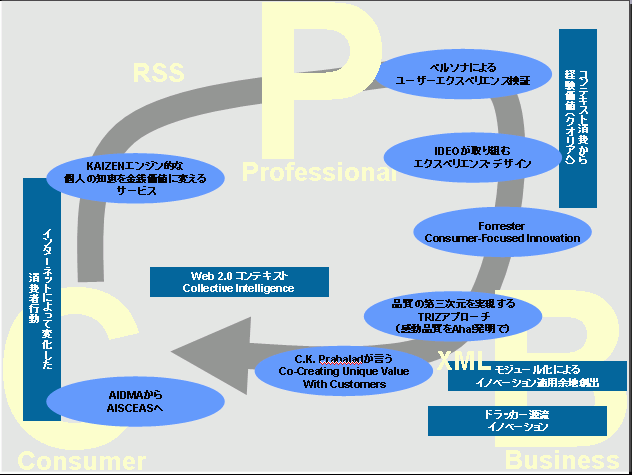
A couple articles of note in the Sunday New York Times. The first piece is a portion of an interview with I.B.M.’s vice president for technical strategy and innovation. This is another call for higher education to create the kind of workforce today's and tomorrow's employers need. IBM, along with a list of top-notch research universities, is developing a curriculum called "services science":
"A small but growing cadre of academics at universities across the country thinks that IBM is onto something and is ramping up the new discipline of services science. “The economy now consists of 70 percent services. It makes sense that we should concentrate on that,” says Henry Chesbrough, adjunct professor and executive director, Center for Open Innovation, Haas School of Business, University of California, Berkeley.
In a 2003 study on the impact of academic research on industrial performance, according to Chesbrough, three product-based sectors had experienced tremendous impact while two services-based sectors — financial services and transportation — saw little impact. With the biggest growth in the economy coming from services, not products, he concludes that “we can and should apply scientific and academic research to services.”
IBM itself has experienced the dramatic transition to a services-based revenue stream. “In the early1980s, services amounted to less than 10 percent of our revenue. Now, services account for over half our revenues,” says Morris.
In the general U.S. economy, the services sector employs 75 percent of the labor workforce, Morris notes, referencing various published sources. And don’t think that this is just a U.S. phenomenon: In Brazil, Russia, Japan, and Germany, services employ over 50 percent of the workforce. As the workforce shifts to services, “the world is experiencing the largest labor force migration in human history, driven by global communications, low-cost labor, technology innovation, and more,” Morris points out. In sheer magnitude, the shift to a services economy rivals the shift from agriculture to manufacturing at the dawn of the Industrial Age.
When you see large-scale labor migration, there is usually an associated economic transformation. Technological innovation drives the global shock. The drag on this economy is the lack of socialization necessary to get the most out of our new toys, thus IBM's demand for a new discipline in higher education.
The Long Tail blog discusses the second article, which I see as linked to the interview about service science. US intelligence is struggling to the power of information and knowledge exchange of blogs and wikis. The problem is the lack of a transparency culture. The CIA is stuck in yesterday's economy of intellectual property and other corporate secrets. The intelligence workers do not know how to thrive in an open information environment.
I think this is a useful allegory for Pittsburgh. The region needs to open up to new ideas, with the power brokers releasing their stranglehold on policy formation. Turf wars may have once served a useful purpose, but that time is over. Pittsburghers must learn how to collaborate.
No comments:
Post a Comment